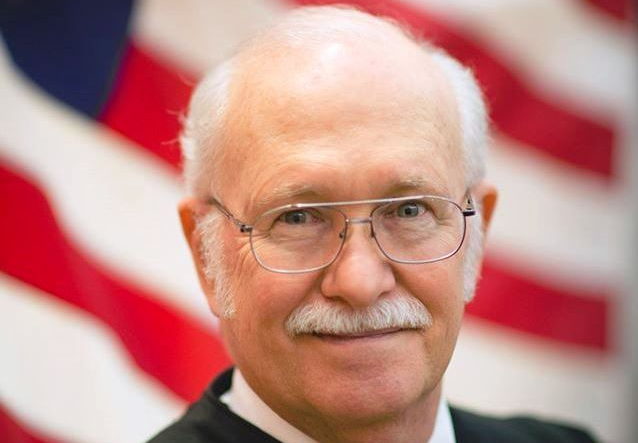Today, in a fetal-homicide case decided by the Alabama Supreme Court, Jessie Phillips v. State of Alabama, Justice Tom Parker once again penned a forceful defense of the rights and personhood of unborn children, strongly urging the United States Supreme Court to overturn its infamous Roe v. Wade abortion decision as a “constitutional aberration” that hinders “the states’ ability to protect the God-given respect and dignity of unborn human life.”
In the majority opinion in Phillips, the Alabama Supreme Court unanimously affirmed the death penalty sentence for Jessie Phillips, a man convicted of capital murder for shooting to death his wife Erica Phillips and their unborn child, Baby Doe. Phillips had argued that he should not get the death penalty for killing his unborn child because, he said, the child was not a “person” under Alabama law. The Court rejected Phillips’s arguments and held that, under Alabama law, Baby Doe was a full “person” and that “the value of the life of an unborn child is no less than the value of the lives of other persons.”
Justice Parker fully agreed with the majority opinion, writing that “unborn children are persons entitled to the full and equal protection of the law.” Justice Parker wrote separately, however, to emphasize how broadly and consistently the law and judicial decisions in Alabama and around the Country protect the rights of unborn children, and to contrast that with “the continued legal anomaly and logical fallacy that is Roe v. Wade.”
In Alabama the legislature expressly enacted the “Brody Act” 12 years ago to include, within the definition of a “person” protected by the murder and assault statutes, “an unborn child in utero at any stage of development, regardless of viability.” Justice Parker noted that the law was changed “with the expressed intent of addressing just the sort of double-murder of which Phillips was convicted.”
Phillips complained that he was the only person in the United States on death row for killing a woman whose unborn child was in the first trimester of pregnancy, but Justice Parker rejected this argument, stating that “Phillips’s crimes were capital not because he killed a pregnant woman but because he killed two persons.” Justice Parker added that, to the extent Phillips was arguing that his unborn child was less of a person because the baby was young (6-8 weeks), Justice Parker dismissed that argument as “entirely unconvincing in light of the natural law, Alabama law, and this Court’s numerous recent decisions consistently recognizing that an unborn child is a human being from the earliest stage of development and thus possesses the same right to life as a born person.” Additionally, this Court has rejected, in the criminal and civil context, “the arbitrary and illogical nature of the viability rule,” a legal fiction that protects unborn children only after they are “viable” outside the womb. Especially after the passage of the Brody Act and the long line of criminal-law and civil-law opinions of the Alabama Supreme Court defending unborn children regardless of age and rejecting the use of the viability rule, Justice Parker declared that in Alabama the “the viability rule is dead and buried.”
Click here to sign up for pro-life news alerts from LifeNews.com
Additionally, as he did in Ex parte Ankrom (2014), Justice Parker provided a current national legal survey of the laws of the states demonstrating “that unborn children have numerous rights that all people enjoy” — in criminal law, civil or tort law, property law, guardianships, health care, and family law. For instance, three more states since 2014 have removed any requirement of “viability” or other gestational age in fetal-homicide statutes, and like Alabama, now provide legal protection to all unborn children at any age or stage of development.
This is hardly Justice Parker’s first pro-life opinion, as he has repeatedly authored judicial opinions explaining that unborn children have a “fundamental, inalienable, God-given right to life” and the states are increasingly acting to protect those precious lives. By contrast, the “isolated Roe exception stubbornly endures” but its foundation is crumbling. Justice Parker blames the fervor of liberal justices. “In order for the outdated, isolated, and crumbling Roe exception to endure,” Justice Parker writes, “liberal Justices must insist, against all scientific evidence and reason, that unborn children are not human. Judicial activism created the Roe exception; blind adherence to Roe‘s judicially imposed dogma allows it to linger.”
Justice Parker calls on the United States Supreme Court to act: “It is my hope and prayer that the United States Supreme Court will take note of the crescendoing chorus of the laws of the states in which unborn children are given full legal protection and allow the states to recognize and defend the inalienable right to life possessed by every unborn child, even when that right must trump the ‘right’ of a woman to obtain an abortion.” By ensuring broad legal protections for unborn children, including under Alabama’s capital murder statutes, Justice Parker writes that “we affirm once again that unborn children are persons with value and dignity equal to that of all persons.”
“The Roe exception is the last remaining obstacle to the states’ ability to protect the God-given respect and dignity of unborn human life. I urge the Supreme Court of the United States to reconsider the Roe exception and to overrule this constitutional aberration. Return the power to the states to fully protect the most vulnerable among us.”








